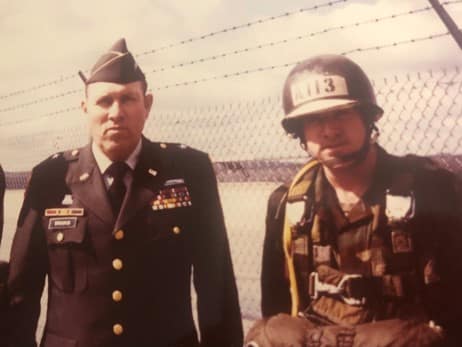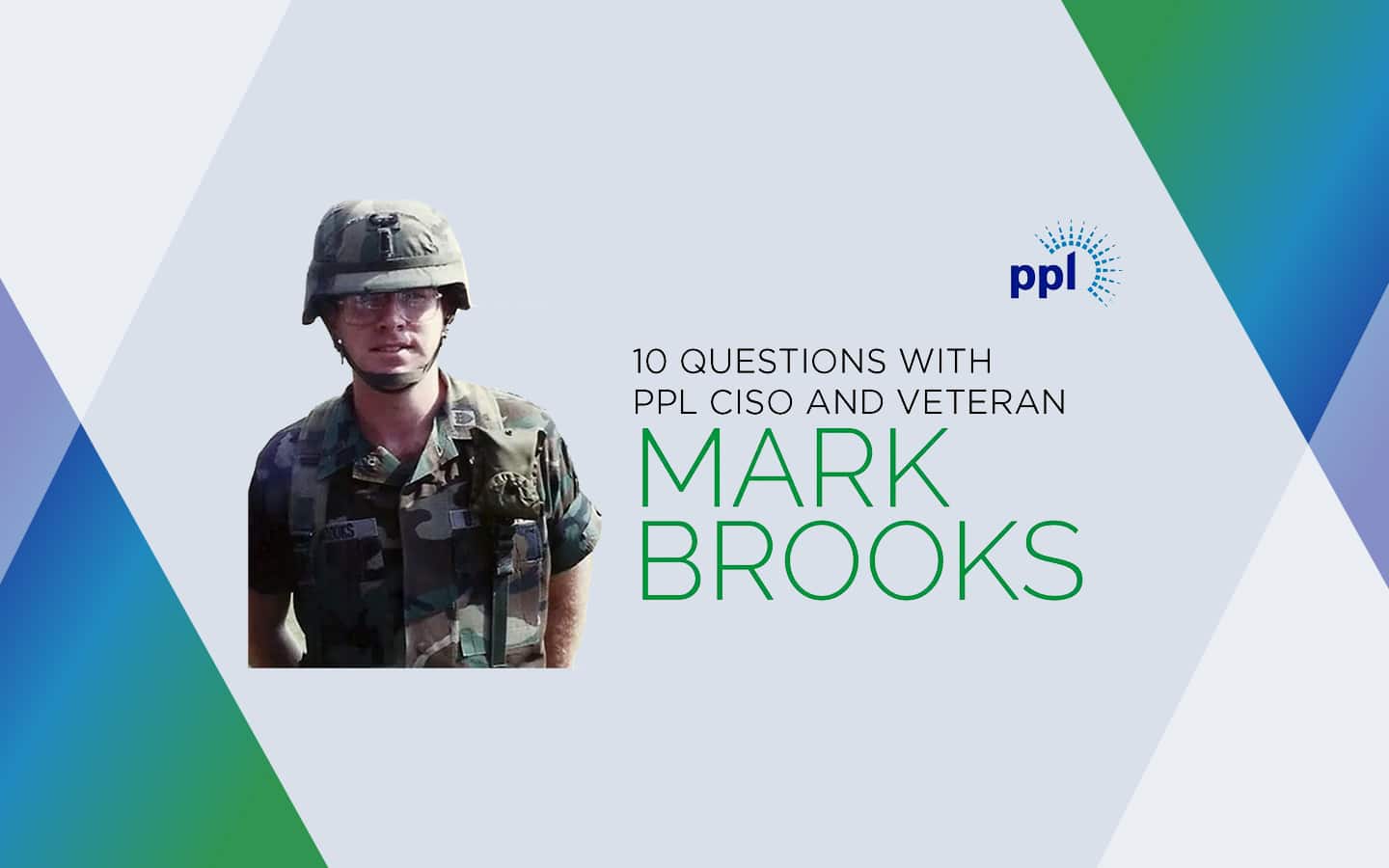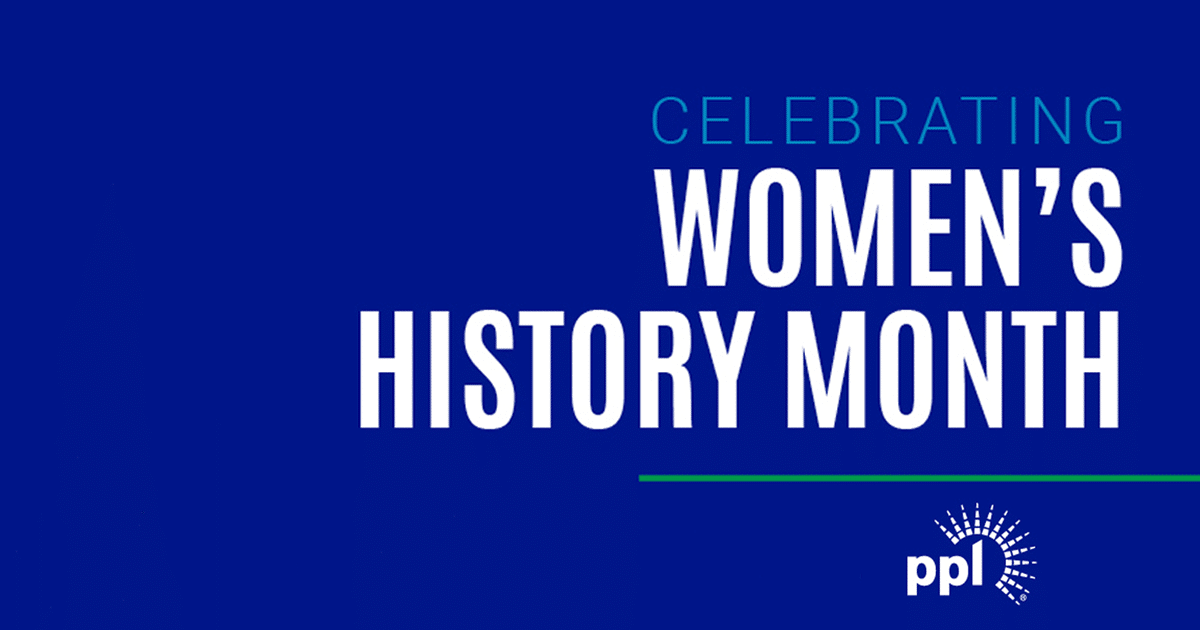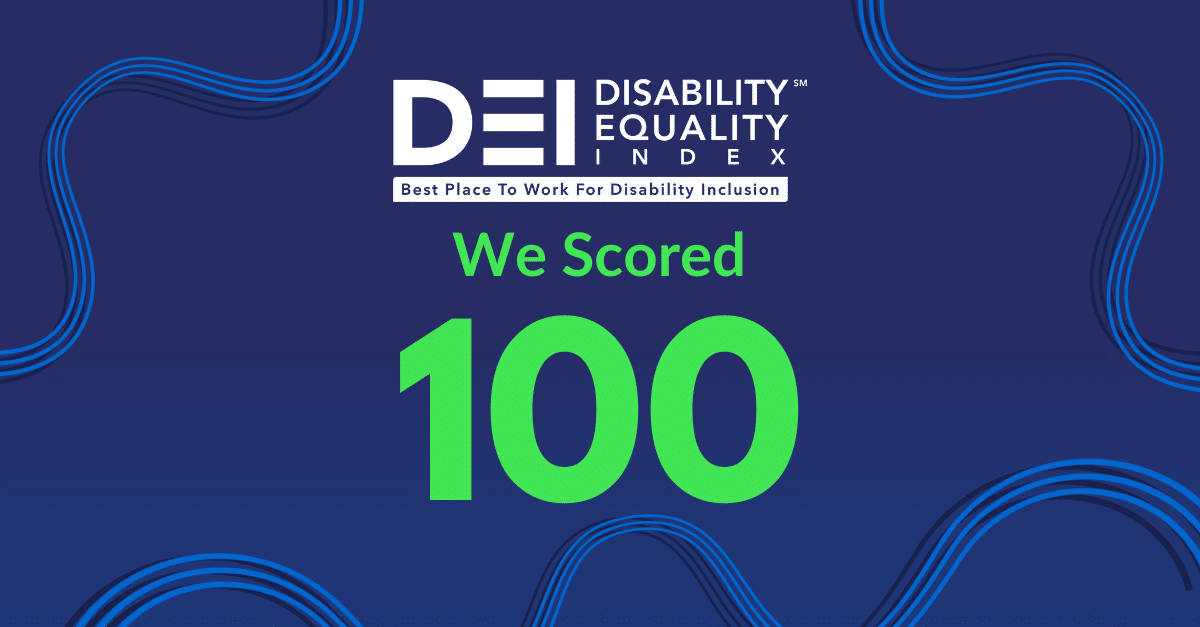In honor of Veterans Day, we are honored to highlight the story of Mark Brooks, chief information security officer, PPL Services.
PPL has established business resource groups in both Pennsylvania and Kentucky dedicated to supporting military veterans and has earned a reputation for supporting and providing career opportunities to the military community. We are proud to share the stories of veterans throughout our company.
Mark Brooks is known around PPL as a chief information security officer, but his family and friends know him as a “military brat,” son of a decorated two-star Army general, and a veteran himself. He always has a life story to share about the military or his life abroad.
Much of his life has revolved around the military from birth. In fact, he was born in a Spanish castle called, El Morro, which was built in the late 1500s to defend the port of San Juan, Puerto Rico. Parts of El Morro were used as a hospital by the U.S. Army. El Morro is now a United Nations Educational, Scientific and Cultural Organization World Heritage Site.

Mark’s life in the Army and his upbringing made a lasting impact and truly shaped his mindset and career.
1. What motivated you to join the military and why did you choose the unit you served in?
I was a “military brat” due to my father being in the Army and I developed a general interest in the military, living abroad and growing up on military bases.
I was also in search of assistance to help pay for college and I was offered an Army ROTC scholarship for school. I signed up to serve at the 101st Airborne Division.
The 101st was at the time and still is, a combat arms unit designed to be a tactically mobile fighting force. Over the years, the 101st has leveraged airborne (paratrooper) and air assault (helicopters) in battle. It has a storied history from World War II, Vietnam and the War on Terror.
2. Your dad was a successful Army General. Tell us about his accomplishments and how they shaped you.
My father, Ronald E. Brooks, served for 35 years in the U.S. Army and retired as a two-star general. Of course, I’m very proud of him – he was my dad!
He was instrumental in shaping and improving Army human resources management, implementing Army-wide health and welfare programs that improved the lives of soldiers and their families, and made a positive impact in local communities, in particular Indianapolis, Indiana. He had such a great impact on the Indianapolis community that his legacy has been honored in various ways throughout the community, including having a town hall, a building, a memorial and a street all named after him.
I think what I learned most from him is the importance and value of caring about people not only from a professional standpoint, but truly caring about their personal lives and personal development. He was a big influence in my leadership perspectives.
3. What was it like being raised a “military brat”?
For me, it was a wonderful experience. The constant moving every few years allowed me to develop relationships with people from different backgrounds, cultures and languages. I lived in several different states, attended schools in six different communities, and went to three different high schools. I lived for one year and graduated high school in Carlisle, Pennsylvania. For a year and half, I lived in a small German community, where all my friends were Germans.
While in Germany, I traveled throughout Europe. I also experienced traveling into what was then the German Democratic Republic (Communist East Germany). That had a lasting impact on me because I remember seeing the impact of authoritarian rule as the people lived in poverty and without the freedoms we enjoy.
I think the most lasting impact the years as a military brat have had on me is simply being able to appreciate and understand different cultures, peoples and environments that exist around the world. I think that the experience helped me develop skills and be comfortable with making successful changes in my career by starting in the military and then leaving for private industry, taking on different roles in both human resources and in IT, and then ultimately in cybersecurity. Or changing companies when opportunities presented themselves. On last count, I had worked at four different Fortune 500 companies and a non-profit!
4. Tell us about your military training?
The stories and advertisements about the military providing you with lots of training are true. Early on, I went to Officer Basic Course and Systems Automation Training at Fort Harrison in Indiana where I learned the fundamentals as a newly commissioned second lieutenant. I then completed paratrooper training at Fort Benning, Georgia.
I attended Air Assault School (Rappelling and Helicopter Operations) at Fort Campbell, Kentucky. Later, I trained on more advanced leadership skills in Officer Advance School back again at Fort Harrison, Indiana. All of these experiences were rewarding and some were pretty scary.
5. Where did you serve the majority of time in service?
I spent most of my tenure in the Army at the 101st Airborne Division in Fort Campbell, Kentucky. At the 101st, I worked in personnel management (HR), where I managed military assignments, enlisted promotions, military awards processing, and casualty and mortuary operations.
6. What did you learn about yourself and others in the military?
I learned I could overcome fears through preparation and practice and listening to those with more experience and expertise.
7.What do you want others to know about veterans?
Less so about me, because I was fortunate enough to serve only during peacetime, but I’d like others to appreciate and understand the sacrifices that soldiers make –
some making the ultimate sacrifice with their lives. And the sacrifices that families and friends make for soldiers to be able to serve.
8. What is something funny that you experienced that could only happen in the military?
I got called into my training commander’s office when I was in Airborne School (paratrooper) at Fort Benning, Georgia. I got yelled and screamed at and had to drop down and do push ups.
I had no idea what I had done wrong. After getting yelled at and finishing my pushups, I asked what I had done. He said I had failed to tell him my dad was an Army general and he was now having to jump through hoops to accommodate a VIP at the graduation! I was then dismissed.
My parents had travelled to see me earn my Airborne Wings at graduation.
9. What experiences and learnings have transferred over to your career as a CISO?
There have been many. I’ve applied the leadership skills and approaches I learned in the Army throughout my career and in my role as a CISO. The skill of disciplined communication is one particular area that I apply to this day. Saying it once, saying it again, saying it once more and saying it consistently is essential to gain alignment and sustained implementation of cybersecurity protections that secure a business. At the speed that business and technology are changing and moving, it’s important to continually reinforce cybersecurity objectives and expectations. Enterprises are so large and complex that without consistent messaging for a sustained period of time, the message often never makes it to the teams that need to do the work, because the message simply gets lost, changed or gets drowned out.
10. How can civilians be good allies to veterans?
We can be good allies by appreciating and leveraging the knowledge and skills that veterans have developed from their experiences. It is also important to support those serving in the National Guard or Reserves when they have training commitments or are activated to work full time.



